'My first pet was a long-eared donkey'
Q&A: What Minnie Mouse the donkey loved to eat and what else inspired veterinary oncology pioneer Dr. Greg Ogilvie.
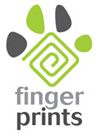
If you took the head of the top practitioner from the Mayo Clinic and melded it with the heart of the director of Mother Teresa's charity, you'd have the primary ingredients of Greg Ogilvie, DVM, DACVIM (Internal Medicine and Oncology), who practices these days at California Veterinary Specialists in Carlsbad, California. He's humble to a fault, soft-spoken, competent, confident and compassionate. You almost never know if a discussion with him is about science or soul, because it's always both.
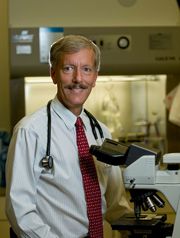
Greg Ogilvie
Where were you born and raised?
I was raised in the mountains of Colorado, where I was enchanted with the beauty and importance of wildlife, dogs, cats, raptors, horses and cattle. My mother told my brother and I that we could bring anything home as long as we slept with it-a powerful lesson on responsibility and of the value and preciousness of animal life. As kids, my brother and I rehabilitated, raised and cared for every creature imaginable by sleeping in the barn or bringing the animals into our bedroom. I'm pretty certain that most children never had a mew in their bedroom to raise and rehabilitate falcons, eagles and hawks among the rodents, fish, deer and elk fawns.
Your first job was ...
Cleaning box stalls, bucking hay and removing rocks from riding arenas. It was hard work, but it set an important cornerstone of my life that health, wellness and compassion must begin with the basics of providing good food, a comfortable living environment and constant, loving stewardship.
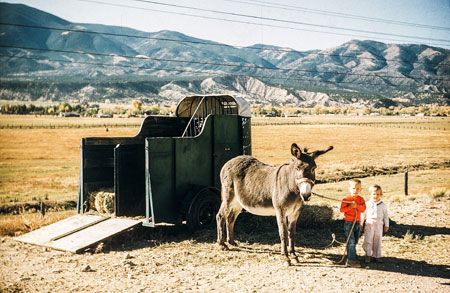
“A long-eared donkey named Minnie Mouse was my first pet. She would wake us up at 6 a.m. on Sundays by braying nonstop until my mother made pancakes and fed her the first short stack. She ate every flower my mother ever planted, escaped from any fence we ever built and steadfastly refused to be led anywhere with somebody on her back. We loved her.”
When did you first know you wanted to be a veterinarian?
Always. On a crisp spring morning when I was 6 or 7, I watched Wendell “Doc Hutch” Hutchinson safely deliver a long-legged colt from “my” struggling mare after a complicated birthing. Steam rose from the newborn colt in the cool, sun-drenched morning. I vividly remember feeling awe in the face of Hutch's compassion and gentleness as he cared for everyone, including me. I was certain there was nothing that would prevent me from becoming one of those amazing doctors.
What is your greatest joy regarding this profession?
Caring for pets and their people, and witnessing the amazing love they share for each other.
Shortly after I graduated from veterinary school, my lovely wife and I went to rural Great Britain on vacation. The first place we stayed was a small cottage built in the 1600s in the midst of a large pasture. When we woke up that first morning, I opened the drapes to our bedroom to find about 20 locals standing outside, quiet as mice. Some were holding dogs, cats, rabbits and goats. When I inquired what was going on, the farmer proudly announced they were here to meet the veterinarian. That's when I first realized I was a member of a proud and precious profession.
What's the worst mistake you ever made as a veterinarian and what did you learn from it?
About three months after I graduated from veterinary school, I went to work at a wonderful hospital in West Hartford, Connecticut, owned by Dr. “Hoppie” Hopkinson. One Friday I was directed to spay a 6-month-old Samoyed puppy. A full 45 minutes into the procedure, I had to admit I couldn't find the ovaries or uterus. One look under the surgical drape at the dog's rotting teeth told me the story: This was the wrong Samoyed! The anesthetized patient was an 11-year-old spayed female dog who was in the hospital for kidney failure while the family was on a three-week vacation on a remote island.
I feverishly sent the family registered letters every single day admitting my horrible mistake while giving them updates as I cared for their dog. Three weeks later, the clients came directly from the airport, unaware of my blunder, only to find their beautifully groomed dog with nice shiny teeth and normally functioning kidneys, thanks to the weeks of fluid therapy. I shared my mistake and waited for the repercussions that never came. After reading their pile of letters, they more than accepted my apologies and enjoyed the improved health of their pet for years to follow.
The lesson: Always own up to your mistakes and trust people to appreciate honesty and compassion!
What is the best part of being a veterinarian?
The best part about being a veterinarian is being able to hug and kiss your patients without getting arrested for inappropriate behavior.
Tell us about a patient that shouldn't have lived but did.
I named our teaching, research and clinical cancer care hospital in San Diego “County Angel Care Cancer Center” for many reasons, because despite the advances in medicine, we cannot claim responsibility for much of what occurs with our patients and our clients. I see miracles all the time, including the full recovery of animals and people with cancer and other disorders. When I lecture at conferences worldwide, I ask each audience of veterinarians if they have ever witnessed a miracle. Regardless of what country or city I'm in, about 80 percent of the attendees eagerly admit to witnessing what they believe are miracles in their patients and clients that go beyond their medical and surgical skills.
One such miracle involved a very large male castrated cat named “Big White Boy,” who was presented by a lovely lady with Parkinson's syndrome and significant cognitive challenges. It was so sad to share the diagnosis of inoperable metastatic carcinoma with this gentle woman who adored her quiet kitty. Despite the grave prognosis, my client refused to consider euthanasia but asked for prayer instead. The cat's recovery coincided with the normalization of her cognitive dysfunction that continues to this day, many years later.
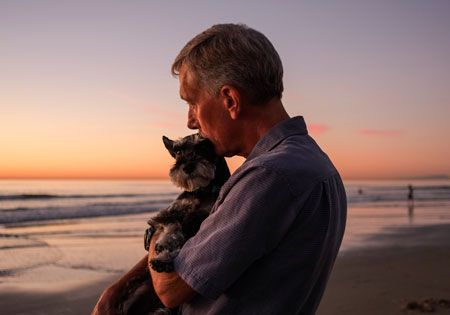
Dogs or cats (can't say both)?
I have to say cats (they're from outer space), because if I don't, they'll put me on their hit list.
What is the trait you most deplore in yourself?
I sometimes get so busy in my work I forget the most important things of life: my friends and family. Forgive me.
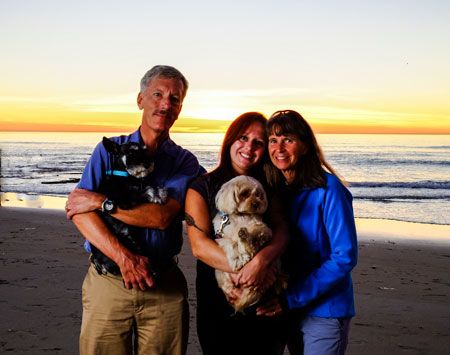
“Happiness is loving and being loved by family and pets while having the honor of practicing veterinary medicine and teaching others about what I love to do! This is me; my daughter, Torrie; and my wife, Karla, are accompanied by Maya Papaya and Luna Tuna on Moonlight Beach near Encinitas, California.”
Who or what is the greatest love of your life?
My wife, Karla M. Ogilvie: historian, extraordinary photographer, my best friend and mother of our daughter, Torrie.
What memento of your mom or dad do you keep close or visible and why?
A sign I share with my daughter, Torrie that says, “Being average scares the hell out of me.”
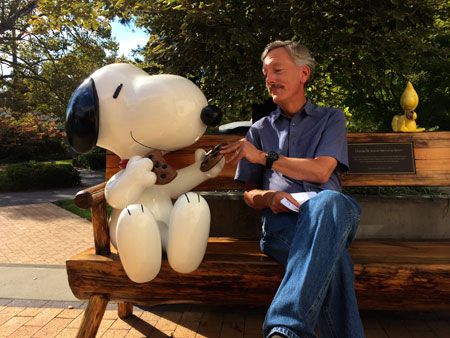
“I wish I had a dollar for every time a client asks me what they should feed their dog or cat. Nutrition is equated with quality of life, and it's often the greatest focus of our clients. It's often the last thing on the mind of a veterinarian or veterinary nurse.”
Who was your favorite teacher and why?
Internist, oncologist, amazing skier and gentle friend Dr. Susan Cotter encouraged me, guided me and inspired me to dare to become better than I ever imagined possible.
If you could spend a day with one veterinarian (living or deceased) who would it be and why?
James Alfred "Alf" Wight, OBE, FRCVS, known by the pen name James Herriot. I've visited his community and his surgery and can attest to the fact that everything he describes about his former home is exactly as described in his writings.
What do you consider your greatest achievement?
Our daughter.
My greatest professional regret is ...
I haven't been more effective at convincing veterinarians to be more actively involved in identifying, selecting, supporting and mentoring future veterinarians. We're in extreme danger of becoming diluted by those who don't have the passion, drive, compassion and love for animals that are the core of our profession. Similarly, new graduates are hamstrung by overwhelming debt that is destroying their future and that of the profession.
What is the most unusual pet name you've ever heard?
Gadzooks, a 21-year-old male, mixed-breed dog who did great after being amputated for an osteosarcoma. Age is a number, not a disease. A Golden Retriever was given the name “Ogilvie” in tribute to me.
Movie that made you laugh the hardest.
Shrek. I cried tears of laughter when the cat hacks up a hairball.
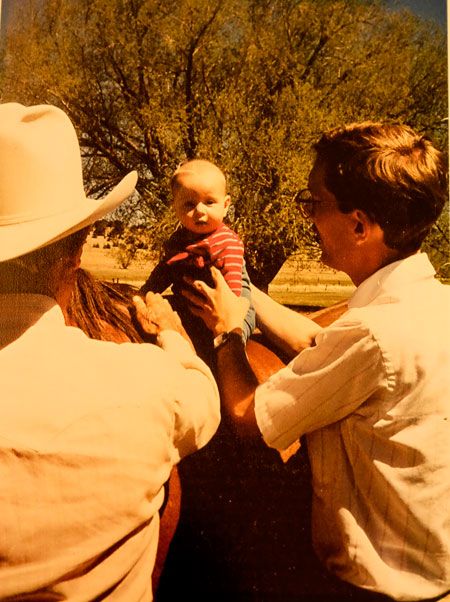
“My most treasured possessions are a hand-tooled western saddle and a branding iron, the ‘S lazy F,' both used by at least four generations of my family of Coloradans. Here, our daughter, Torrie, is helped onto a horse for her first horseback ride by her great-grandfather, her grandfather taking the picture and me.”
What's your spirit animal?
Peregrine falcon: certain, agile, intelligent, swift, graceful and caring.
What's one thing in this world we need to get rid of?
Hate and all its forms.
What was your most embarrassing moment?
On my first call to suture up a horse on a freezing, windy Colorado night, I was so excited to be a young veterinarian in my brand-new overalls and boots. The rancher was holding my future patient, who had a large gash in his neck. I grabbed my laceration surgical pack, opened the truck door and stepped out into the darkness to fall a dozen feet straight down into an ice-filled irrigation ditch. I crawled up the embankment and sutured the horse with frozen hands, while covered with mud.
Would you encourage your child to become a veterinarian?
In a New York minute. It's the greatest profession the world has ever known and is made up of extraordinary, passionate, selfless people who care as much from their hearts as they do from their minds.
If you wave a magic wand and change one thing about veterinary medicine that would help pets, people and the profession you would...
Continue Dr. Leo Bustad's legacy by ensuring everyone in our profession truly understands the power of the human animal bond, the foundation of a vibrant veterinary profession.There is a difference between being a veterinarian and a veterinary nurse and being a true veterinary healer, and that difference is caring for animals and their people and enriching the relationship between them.
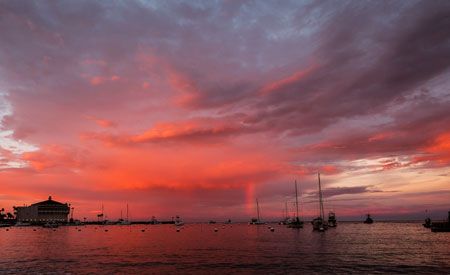
“Catalina Island off the coast of California is an ideal vacation spot for people who love animals because it is an island paradise that is surrounded by crystal clear waters full of flying fish, pods of dolphins, seals and sea lions and of course, migrating whales. I'm always reminded that the greatest gift a veterinarian can have is to understand that the power of healing does not just come in a medicine bottle or at the edge of a surgical blade. It also comes from an inner energy, the gentle kindness of compassionate care, the power of family, friendship, prayer and the healing grace of God and nature.”
When you retire, you're going to ...
Provide free care for pets and people anywhere in the world that will have me as I share my faith.
Veterinary Economics Practice Leadership Editor Dr. Marty Becker is a renowned speaker, TV personality and author of The Healing Power of Pets: Harnessing the Amazing Ability of Pets to Make and Keep People Happy and Healthy. Dr. Becker practices at North Idaho Animal Hospital in Sandpoint, Idaho.